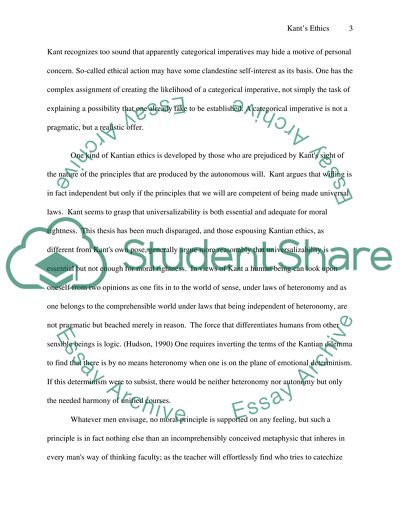Cite this document
(“Kant's Ethics Essay Example | Topics and Well Written Essays - 500 words”, n.d.)
Retrieved from https://studentshare.org/philosophy/1502459-kants-ethics
Retrieved from https://studentshare.org/philosophy/1502459-kants-ethics
(Kant'S Ethics Essay Example | Topics and Well Written Essays - 500 Words)
https://studentshare.org/philosophy/1502459-kants-ethics.
https://studentshare.org/philosophy/1502459-kants-ethics.
“Kant'S Ethics Essay Example | Topics and Well Written Essays - 500 Words”, n.d. https://studentshare.org/philosophy/1502459-kants-ethics.


